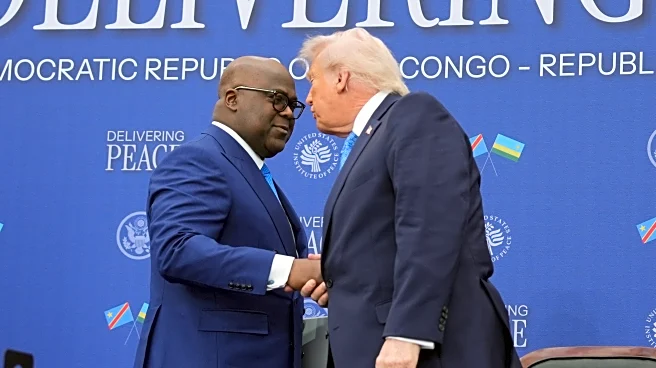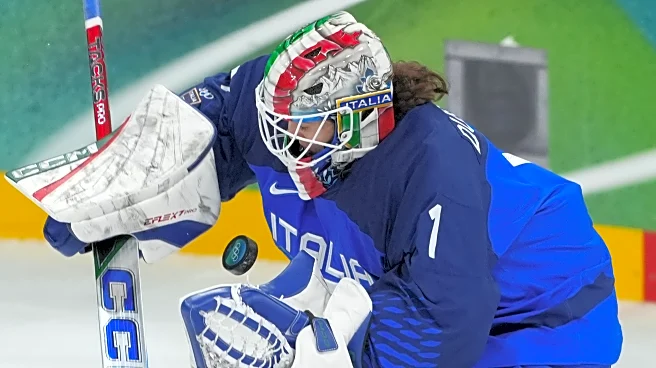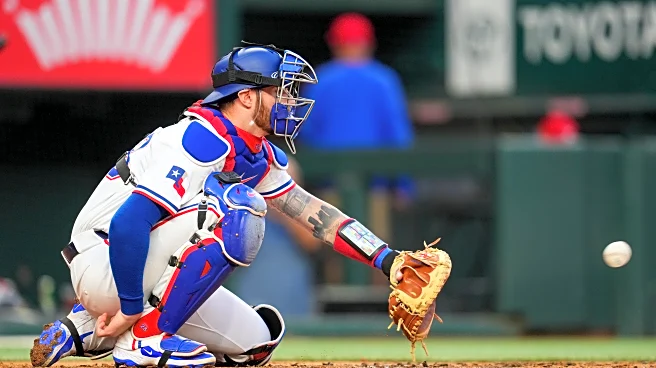What's Happening?
Sophie Guitron, a flag football champion, is aiming for a spot in the 2028 Los Angeles Olympics after overcoming significant health challenges. Diagnosed with a rare congenital heart disease at age 10, Guitron underwent successful open-heart surgery in 2018. Despite a difficult recovery, she discovered a passion for flag football, excelling in the sport and earning numerous accolades. Guitron has been recognized for her achievements, including winning a gold medal at the Junior International Flag Football Cup and being part of the NFL's 'Chase Something' campaign. She is set to play flag football at Keiser University and aims to represent the United States in the upcoming Olympics.
Why It's Important?
Guitron's journey highlights the growing popularity and recognition of flag football, especially as it prepares to debut in the 2028 Olympics. Her story is significant for the representation of Latino athletes in sports, serving as an inspiration for young athletes facing health challenges. Guitron's achievements underscore the potential for flag football to gain prominence in the U.S., offering new opportunities for athletes and expanding the diversity of sports in the Olympic program. Her success also emphasizes the importance of resilience and determination in overcoming personal obstacles to achieve athletic dreams.
What's Next?
Guitron plans to continue her flag football career at Keiser University, focusing on sports management studies. Her long-term goal is to compete in both the 2028 and 2032 Olympics, showcasing her dedication to the sport. As flag football gains traction, Guitron's progress will be closely watched by sports enthusiasts and organizations. Her involvement in the NFL's campaign may lead to further opportunities to promote the sport and inspire other young athletes. The development of women's flag football teams, like the one at Mira Costa High, could see increased support and expansion across schools nationwide.
Beyond the Headlines
Guitron's story sheds light on the challenges faced by athletes with health conditions, emphasizing the importance of medical support and personal resilience. Her role as a Latina athlete in a predominantly male sport highlights cultural and gender dynamics in sports, potentially influencing future inclusivity and diversity initiatives. The emergence of flag football in the Olympics could lead to broader discussions on the evolution of sports and the inclusion of non-traditional events in global competitions. Guitron's journey may inspire further research into the impact of sports on health recovery and personal development.










